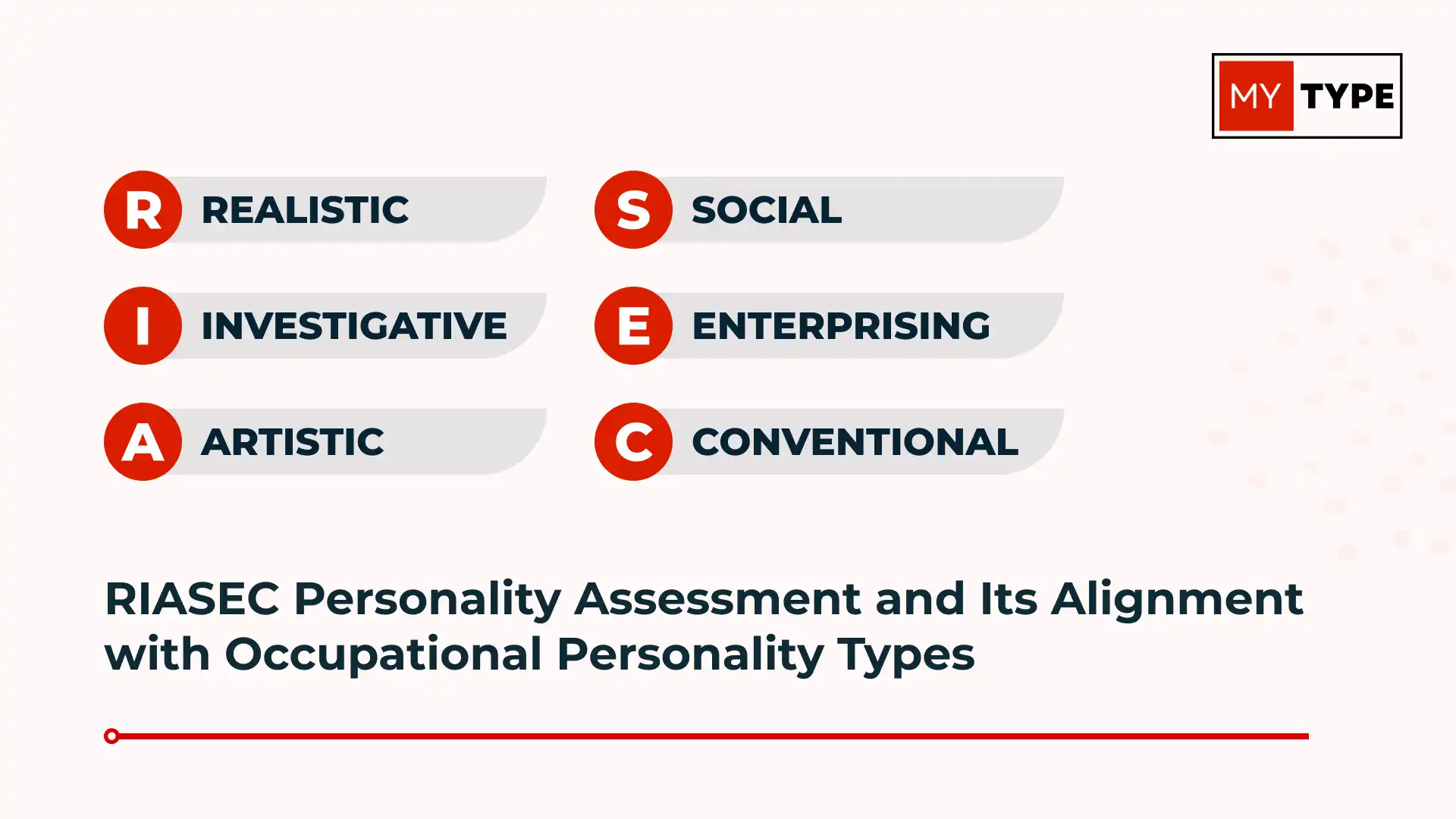RIASEC Personality Assessment and Its Alignment with Occupational Personality Types

Did you know that the RIASEC Personality Assessment is not only a tool for self-discovery but also provides valuable insights into occupational personality types?
One fascinating fact about the RIASEC model is its ability to identify individuals' preferences and compatibility with specific career paths. The model was initially developed by psychologist John Holland, who believed that people are naturally drawn to work environments that align with their personality traits and interests.
The RIASEC assessment categorizes individuals into one or more of the six personality types based on their responses to a series of questions. Each personality type corresponds to specific occupational preferences and characteristics. Here's an overview of the matching occupational personality types:
Realistic (R)
Realistic individuals are practical, hands-on, and enjoy working with tools, machines, and physical objects. They are often drawn to careers in trades, construction, engineering, and other practical fields.
Investigative (I)
Investigative individuals are analytical, curious, and enjoy solving complex problems. They thrive in careers that involve research, science, technology, and data analysis.
Artistic (A)
Artistic individuals are creative, expressive, and have a keen eye for aesthetics. They are drawn to careers in the arts, design, music, writing, and other creative fields.
Social (S)
Social individuals are compassionate, empathetic, and enjoy helping and working with others. They excel in careers such as counseling, social work, teaching, healthcare, and community services.
Enterprising (E)
Enterprising individuals are assertive, confident, and enjoy leading and persuading others. They thrive in careers that involve sales, entrepreneurship, management, and business development.
Conventional (C)
Conventional individuals are organized, detail-oriented, and enjoy working with data and numbers. They excel in careers in finance, accounting, administration, data management, and other structured fields.
By understanding their RIASEC personality type, individuals can gain valuable insights into the types of careers that align with their strengths, interests, and preferences. This knowledge can guide their career choices, increase job satisfaction, and enhance their overall sense of fulfillment in the workplace.
It's important to note that while the RIASEC model provides a useful framework for exploring career options, it doesn't limit individuals to specific occupations. Personal interests, values, and skills should also be taken into consideration when making career decisions.
In conclusion, the RIASEC personality assessment offers more than just self-discovery; it provides a pathway to understanding how our unique personality traits align with different occupational preferences.
So, embrace the power of the RIASEC model, explore the fascinating link between personality and careers, and embark on a journey of finding fulfillment and success in a profession that resonates with who you are.